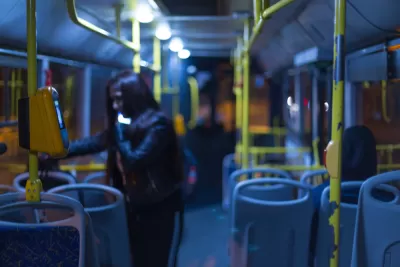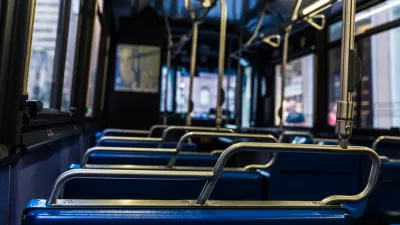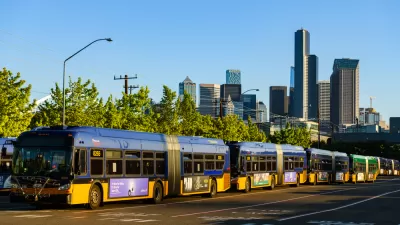After dramatic losses of riders and operators during the pandemic, transit agencies around the country are supplementing operational costs with federal relief dollars.

Transit agencies nationwide are taking in less farebox revenue, with agencies recovering, on average, just 12.8 cents for every dollar they spent on operations in 2021, down from 32.3 cents in 2019.
According to an article in The Center Square by Elyse Apel, Tom Gantert, and Brett Rowland, “Once the pandemic hit, transit operational costs increased while passengers abandoned public transportation for various reasons – including fear of COVID-19, working from home and having some transportation shut down.” Many transit agencies also eliminated fares in an effort to assist low-income riders and encourage more people to use public transportation.
The federal government allocated $71.7 billion to transit in four Covid-19 relief packages. This was a significant shift from pre-pandemic years: in 2019, federal funding made up 7.1 percent of transit operating expenses. In 2021, federal dollars funded 36.2 percent of operations. “The National Transit Authority stated 852 transit agencies across the U.S. spent $13.1 billion in federal pandemic relief funds mostly on operational expenses in 2021, a 95% increase from the previous year.”
FULL STORY: As transit fares plummet, federal money increases 95%

Planetizen Federal Action Tracker
A weekly monitor of how Trump’s orders and actions are impacting planners and planning in America.

Congressman Proposes Bill to Rename DC Metro “Trump Train”
The Make Autorail Great Again Act would withhold federal funding to the system until the Washington Metropolitan Area Transit Authority (WMATA), rebrands as the Washington Metropolitan Authority for Greater Access (WMAGA).

The Simple Legislative Tool Transforming Vacant Downtowns
In California, Michigan and Georgia, an easy win is bringing dollars — and delight — back to city centers.

The States Losing Rural Delivery Rooms at an Alarming Pace
In some states, as few as 9% of rural hospitals still deliver babies. As a result, rising pre-term births, no adequate pre-term care and "harrowing" close calls are a growing reality.

The Small South Asian Republic Going all in on EVs
Thanks to one simple policy change less than five years ago, 65% of new cars in this Himalayan country are now electric.

DC Backpedals on Bike Lane Protection, Swaps Barriers for Paint
Citing aesthetic concerns, the city is removing the concrete barriers and flexposts that once separated Arizona Avenue cyclists from motor vehicles.
Urban Design for Planners 1: Software Tools
This six-course series explores essential urban design concepts using open source software and equips planners with the tools they need to participate fully in the urban design process.
Planning for Universal Design
Learn the tools for implementing Universal Design in planning regulations.
Smith Gee Studio
City of Charlotte
City of Camden Redevelopment Agency
City of Astoria
Transportation Research & Education Center (TREC) at Portland State University
US High Speed Rail Association
City of Camden Redevelopment Agency
Municipality of Princeton (NJ)





























